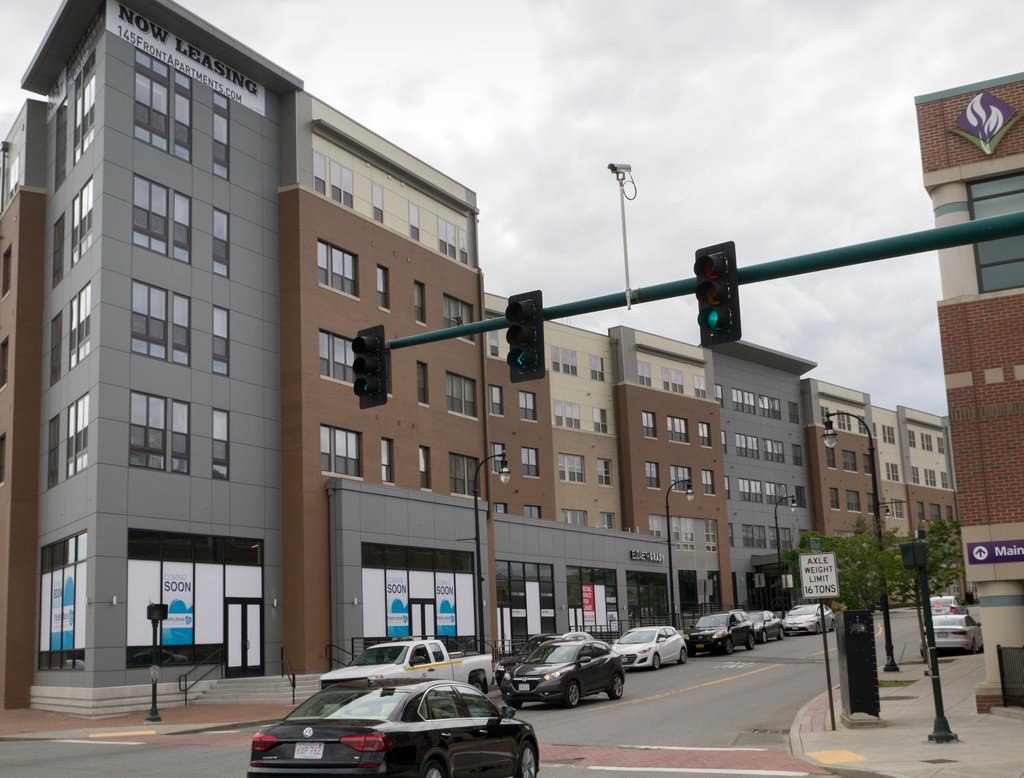stellarfun
Senior Member
- Joined
- Dec 28, 2006
- Messages
- 5,711
- Reaction score
- 1,544
Holy Cross is building a new Performing Arts Ctr.
https://www.telegram.com/news/20181011/holy-cross-plans-92m-center-for-arts
The architect is Diller Scofidio + Renfro.
Holy Cross is building a new Performing Arts Ctr.
https://www.telegram.com/news/20181011/holy-cross-plans-92m-center-for-arts
The architect is Diller Scofidio + Renfro.
I'd disagree. It isn't an unproven conspiracy of the automakers, it is a fact. They simply stopped making trolleys which were firmly established throughout the land. Predatory industry practices occur continuously in an open market. Bigger companies buy up smaller competitors with superior products and then mothball those products. Oracle & IBM are exhibit A in the tech sector over the past 25 years. It happens in every industry.
While there may have been a decline in demand, there was certainly still ample usage, especially by the working poor of the times. What was not foreseen, and where government failed, was envisioning the future where you can longer add capacity to the road system.
The same thing happened with heavy rail. From an efficiency standpoint most hard goods in theory should traverse the country through rail. But the interstate system, the rise of the teamsters' influence and the decline of once powerful rail industry by not adapting to society changes decimated the industry. Thankfully it has stabalized and, I believe is now growing somewhat.
I think the issue here is with the word "conspiracy". As Halcyon points out, companies buy other companies and mothball them if they're competition. It's just the way it works. That's what's proven. What's not proven, and won't be, because it's ridiculous, is that some nefarious international consortium systematically uprooted streetcars for some evil reason. Dont overlook what Rover is saying - capitalism creates a culture that wants something new, and cars and suburbs were new. They were a change, and that's also what America wanted at the time. I see in the more extreme proffering of conspiracy arguments the same anger and paranoia splashed all over today's America, just in this case, the bad guys are the auto industry, bus industry, drivers, etc. Don't discount the human responsibility for everything that happens: the decline of streetcars wasn't crammed down the throats of an unwilling populace; it happened for a reason and fell in line with a zeitgeist that we're probably still too close to in time to fully discern. Not to throw bombs, but if you think that Trump or something like him just "happens" in either a vacuum or only because of the "bad guys", you're missing the fundamental point of how group dynamics work... we all bear responsibility for everything that happens...
I think the issue here is with the word "conspiracy". As Halcyon points out, companies buy other companies and mothball them if they're competition. It's just the way it works. That's what's proven. What's not proven, and won't be, because it's ridiculous, is that some nefarious international consortium systematically uprooted streetcars for some evil reason. Dont overlook what Rover is saying - capitalism creates a culture that wants something new, and cars and suburbs were new. They were a change, and that's also what America wanted at the time. I see in the more extreme proffering of conspiracy arguments the same anger and paranoia splashed all over today's America, just in this case, the bad guys are the auto industry, bus industry, drivers, etc. Don't discount the human responsibility for everything that happens: the decline of streetcars wasn't crammed down the throats of an unwilling populace; it happened for a reason and fell in line with a zeitgeist that we're probably still too close to in time to fully discern. Not to throw bombs, but if you think that Trump or something like him just "happens" in either a vacuum or only because of the "bad guys", you're missing the fundamental point of how group dynamics work... we all bear responsibility for everything that happens...
I was talking about nationally, but it still applies here, too. If things hadn’t shifted nationally someone else would’ve come in and taken over the streetcar system. Worcester wouldn’t have converted to cars for everyone in a vacuum, and it wouldn’t have had no transportation system for its sizeable population, either.





"Incredible"? It's about as banal as it gets
